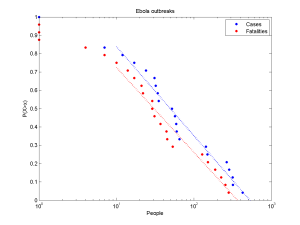
The Unilateralist Curse and Covid-19, or Why You Should Stay Home: why we are in a unilateralist curse situation in regards to staying home, making it rational to stay home even when it seems irrational.
Taleb and Norman had a short letter Ethics of Precaution: Individual and Systemic Risk making a similar point, noting that recognizing the situation type and taking contagion dynamics into account is a reason to be more cautious. It is different from our version in the effect of individual action: we had single actor causing full consequences, the letter has exponential scale-up. Also, way more actors: everyone rather than just epistemic peers, and incentives that are not aligned since actors do not bear the full costs of their actions. The problem is finding strategies robust to stupid, selfish actors. Institutional channeling of collective rationality and coordination is likely the only way for robustness here.
Never again – will we make Covid-19 a warning shot or a dud? deals with the fact that we are surprisingly good at forgetting harsh lessons (1918, 1962, Y2K, 2006…), giving us a moral duty to try to ensure appropriate collective memory of what needs to be recalled.
This is why Our World In Data, the Oxford COVID-19 Government Response Tracker and IMF’s policy responses to Covid-19 are so important. The disjointed international responses act as natural experiments that will tell us important things about best practices and the strengths/weaknesses of various strategies.
